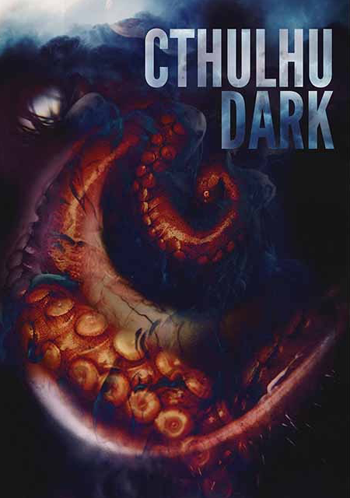I started to feel that I didn’t know roleplaying games well enough so I came up with the plan to read a roleplaying game corebook for every year they have been published. Selection criteria is whatever I find interesting.

Player character positioning is something I’ve always found interesting in designing roleplaying games. Who are the characters, what do they want, how do they connect to the action in the game? What kind of motivations they have?
In mainstream roleplaying games, the best example of laser-focused character positioning is in Werewolf: the Apocalypse. The characters are essentially holy warriors saving the world from those who despoil it. Motivational design is baked into the core concept. Character actions flow naturally from how the fiction has been set up.
Some games position the player characters in an artificial way, where the players must accept the rubric of the character group as a genre convention for the game to work at all. The most famous example is Dungeons & Dragons with it’s concept of the adventuring party. In the game, it’s assumed that characters from various backgrounds like to band together to risk life and limb in dark dungeons.
Another example of artificial character positioning is the Investigator of Call of Cthulhu and related games. The Investigator is assumed to be a person who obsessively investigates occult mysteries despite the obvious danger. The game ceases to function immediately if the players suddenly decide their characters are too terrified and go home. The action depends on players accepting the genre convention that their character will always investigate further, the same as a D&D character will always delve deeper into the dungeon.
I was thinking of all this when I read Cthulhu Dark, a mechanically minimalist game based on the works of H.P. Lovecraft. The game runs on a simple system based on just a few dice. There’s no chance of failure on ordinary investigative rolls. Instead, the dice just tell you if you find extra information as well. If failure would seem interesting for a particular roll, then you can make the choice to add a failure die. There’s also an insight die that you can add to rolls to increase chances of success but as is typical in Lovecraftian games too much insight leads to insanity.
Cthulhu Dark has a number of settings in different times and parts of the world: Arkham, London, Mumbai, etc. In all cases, the setting design is informed by a basic principle: The characters are powerless, the horror is found at the heart of power. This means that the types of professions characters can have diverges wildly from most other roleplaying games. In Cthulhu Dark, you end up playing Ragpickers or Housewives, characters who are usually poor and at best middle class.
In terms of design, you can roughly divide roleplaying games into two categories: Those that make the system the center of the experience and those that run on participant skill. In the latter type of games, the system is more of a spice, an advisory element used at the discretion of the GM or the players. Neither category is absolute but the design tendencies are still there.
In a system based game, the experience progresses when you follow the rules and do what they tell you to do. Many indie games are built like this: The system is a machine that runs you through the experience, often understood as a story.
Cthulhu Dark is a participant skill -based game. It has an excellent section of advice on how to run the game, with the goal of teaching the skills to make the game work. To me it has felt like this type of design, where the teaching the GM and the players to build their own experience is a core goal, was more fashionable in the Nineties while in later years system first -design has become more prominent.
Personally, both the games I play and the games I’ve published so far have tended to run on player skill. The goal of the game book is to explain the skills and try to impart them, to help the players to use the game for their own creative ends. Because of this, I felt a sense of affinity for Cthulhu Dark while I was reading it. Finally a game after my own heart! Minimal mechanics, maximum emotion. Play to lose.
That’s why I paid so much attention to character positioning. It follows the Call of Cthulhu Investigator template, reminding me not to read the book through my own lens. It’s still a story-based game, and says so. Familiar but still a product of another play culture.